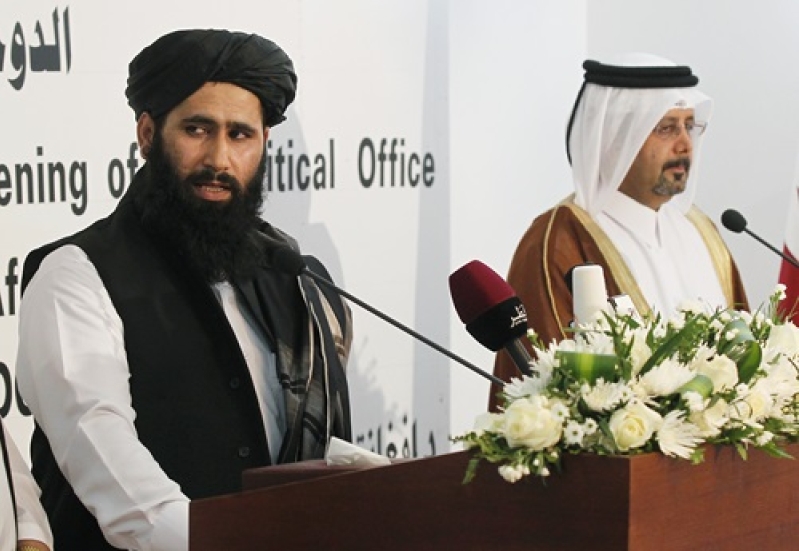
The Taliban announced its acceptance to open the Afghan peace negotiations in Qatar, and showed new readiness to talk with American and Afghan officials, who said in turn that they would meet insurgent negotiators there within days.
Although the Taliban have rejected a peace talk in March 2012, it was unclear what caused them to make the first move. Moreover, as Western military withdraw and hand over complete security over to Afghan forces across the country, the Taliban have responded in recent weeks by increasing the tempo of attacks against the Afghan forces.
Obama called the Taliban’s announcement “an important first step toward reconciliation,” but cautioned that it was only “a very early step.”
“We anticipate there will be a lot of bumps in the road,” Obama said at the Group of 8 summit meeting in Northern Ireland, according to New York Times.
President Karzai commented on the opening of the Taliban office at the ceremony on Tuesday celebrating the transfer of all security responsibilities across Afghanistan to Afghan forces.
“Peace is the desire of the people of Afghanistan,” said Karzai at a news conference in Kabul. “Peace is the hope that the people of Afghanistan make sacrifices for every day.”
Ambassador James Dobbins, Special Representatives for Afghanistan and Pakistan is leading a team of officials to the reconciliation talks, according to CBS News. He’ll depart Tuesday from the State Department.
Dobbins will stop in Ankara, Turkey, and Doha, Qatar, before stopping in Afghanistan and Pakistan, where he will be hold reconciliation talks at each stop. And then members of Afghanistan’s High Peace Council, which is to represent the government in talks, are to travel to the Persian Gulf, emirate to speak with insurgents.
The peace negotiations are Afghan-led but added that U.S. delegation would hold the first meetings. Jen Psaki, State Department spokeswoman, said that the U.S. wants to discuss “our concerns about Taliban connections to international terrorism.”
A senior administration official said that the Taliban will sent representatives to the talks who are “fully authorized” by Mullah Omar, the spiritual leader of the Taliban.
The Afghan government and U.S. officials want the Taliban to break its ties to Al Qaeda and accept Afghanistan’s constitution which guarantees the rights of women and minorities, including Christians.
While talk between U.S. and the Taliban “can help advance the process”, the core of the negotiations is going to be among Afghans. “The level of trust on both sides is extremely low, as one would expect,” the official said. “So it is going to be a long hard process if indeed it advances significantly at all.”
The Taliban have insisted on holding talks on neutral group outside Afghanistan and Pakistan, where much of the Taliban leadership currently lives.






